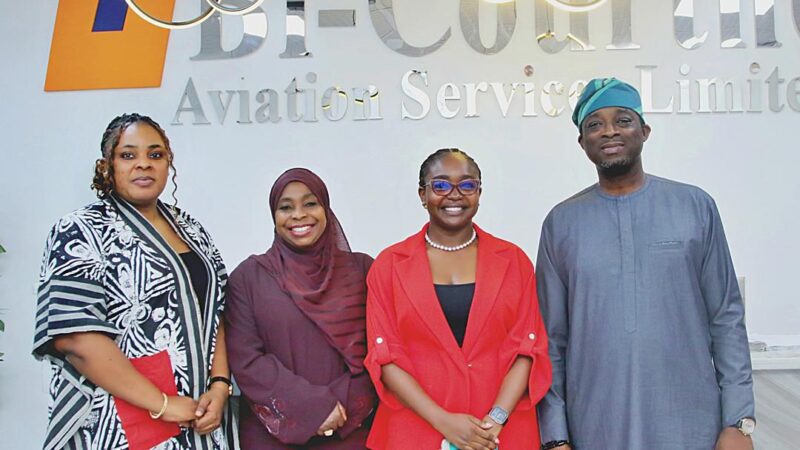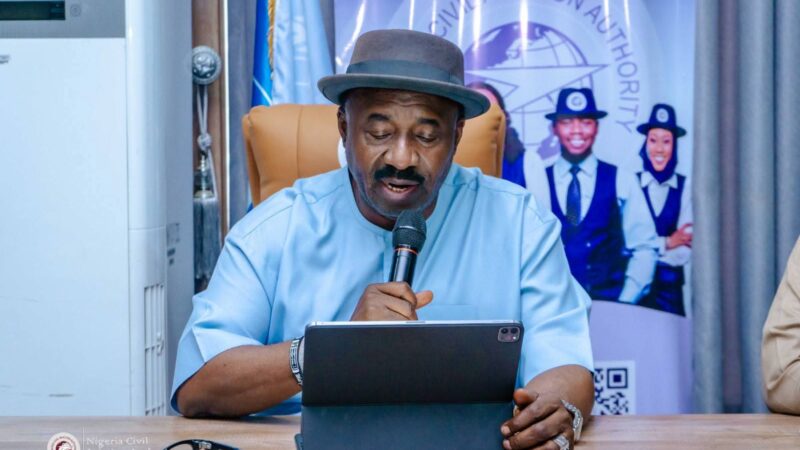Apapa Customs Officers Begin Intensive First Aid Training to Boost Workplace Safety
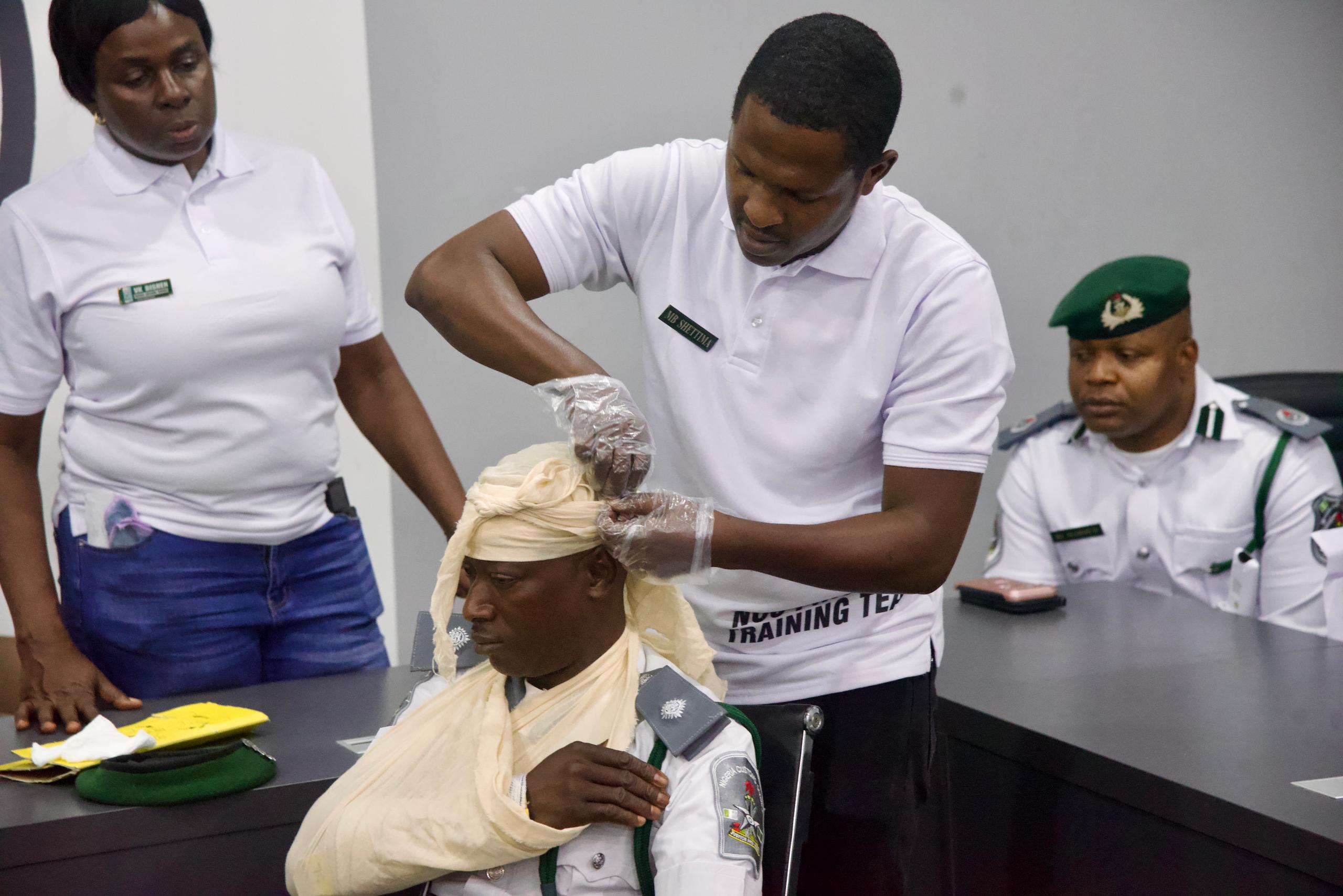
The Apapa Area Command of the Nigeria Customs Service has launched a comprehensive first aid training programme for its officers and men, marking a significant push to strengthen workplace safety, emergency preparedness and operational resilience across one of the country’s busiest maritime commands.
The initiative, declared open by the Customs Area Controller, Comptroller Emmanuel Oshoba, brought a specialised medical team from the Service to Apapa for an extensive hands-on training in life-saving procedures.
Oshoba described the programme as a vital investment in staff welfare and operational readiness, reflecting the priority placed on human capacity development by the Comptroller-General of Customs, Bashir Adewale Adeniyi, MFR.
The training covers essential emergency response techniques including cardiopulmonary resuscitation, bleeding control, choking relief, gunshot response, and the management of bone and joint injuries.
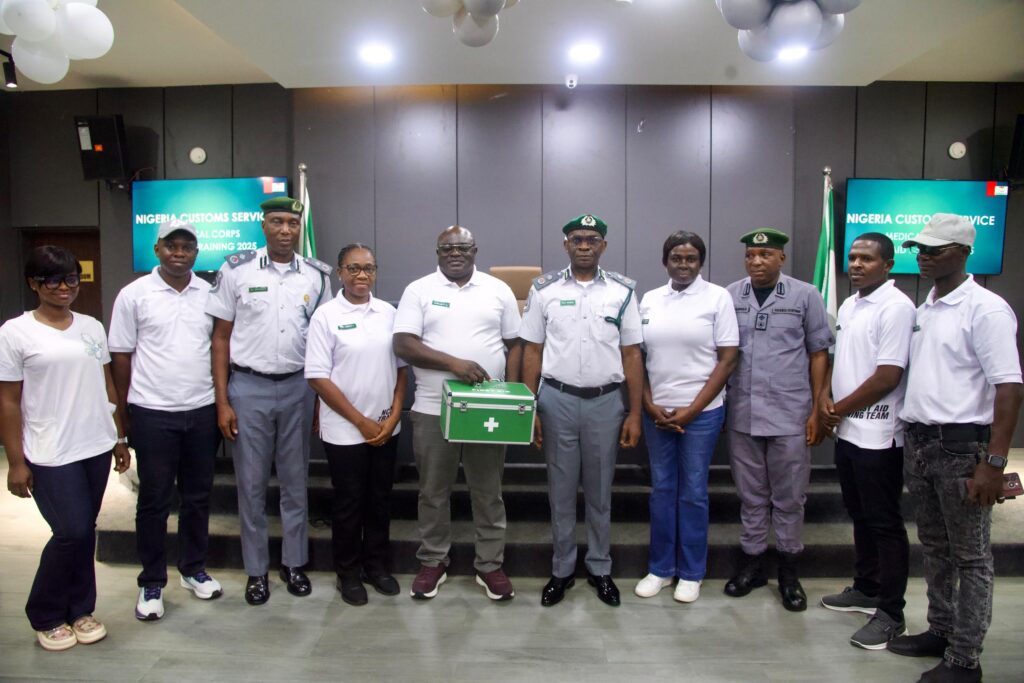
Addressing participants at the opening session, Comptroller Oshoba remarked that first aid competence is a universal life skill every adult should possess, particularly security operatives who frequently work in high-risk environments.
He stressed that in emergency cases, simple but timely interventions often determine whether a victim survives or suffers avoidable complications.
“CPR, bleeding control, choking relief and stroke recognition can make the difference between life and death. The absence of first aid capability at critical moments could lead to tragedies that could otherwise have been averted,” he said.
Oshoba noted that customs personnel often operate in remote or high-pressure locations where professional medical help is not immediately accessible. This reality, he explained, makes it necessary for officers to serve as first responders.
“The person standing next to you could be your emergency nurse or paramedic before a doctor is reached,” he added, urging officers to treat the programme not as an optional class but a crucial component of their professional responsibility.
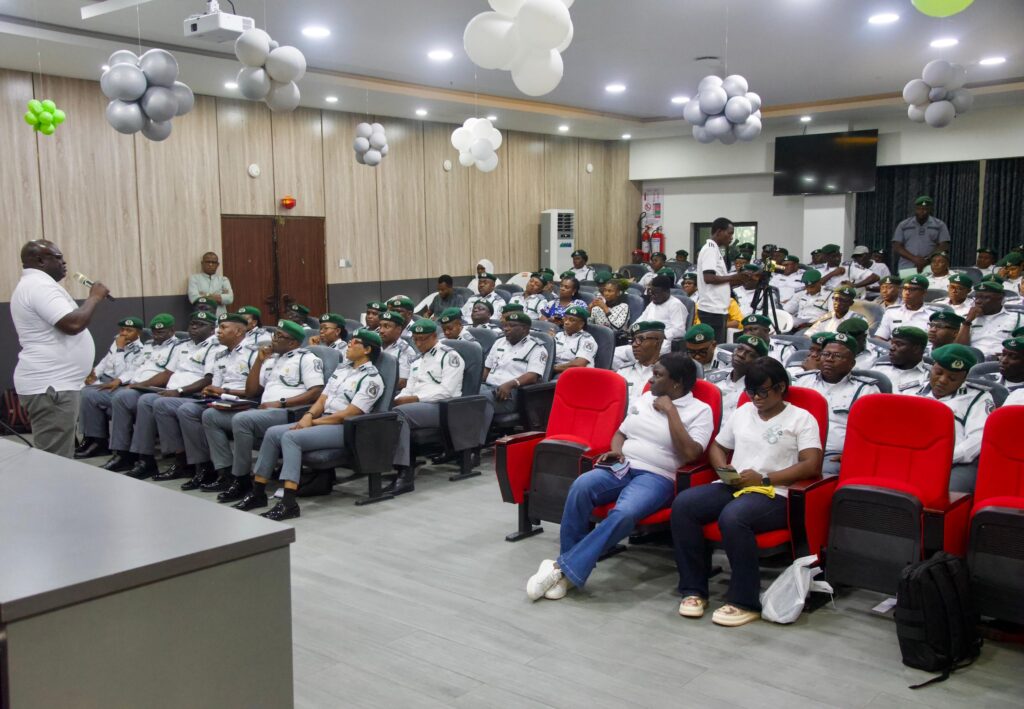
While acknowledging that some officers already have basic first aid knowledge, Oshoba encouraged them to embrace the training as an important refresher. For first-timers, he emphasised the need for full engagement, especially with the practical sessions, describing hands-on application as the true measure of mastery.
The Medical Team Lead and Zonal Medical Officer for Zone B, Comptroller A. S. Aku, facilitated the demonstrations. He reminded participants that emergencies demand calmness, precision and swift response, noting that panic often worsens situations.
“When there is an emergency, you are the first responder. What you do in the first few minutes before help arrives is crucial. Today, we are practising the basic skills that save lives,” he said.
Aku added that by the end of the training, participants should understand the four goals of first aid, identify its various types, and know when and how to administer each procedure.
Throughout the session, every participant had the opportunity to practise CPR, manage choking incidents, and simulate field-based emergency care situations.
One of the highlights of the event was the formal presentation of the Customs Medical Corps First Aid Manual by Comptroller Aku to Comptroller Oshoba. The manual is expected to serve as a vital reference tool for officers across the Command.
Declaring the programme officially open, Oshoba described it as “time well spent” and expressed confidence that the officers would emerge better equipped to safeguard their colleagues, families and members of the public during emergencies.
The training reinforces the Service’s ongoing efforts to enhance occupational health, safety culture and operational effectiveness across all Commands.



